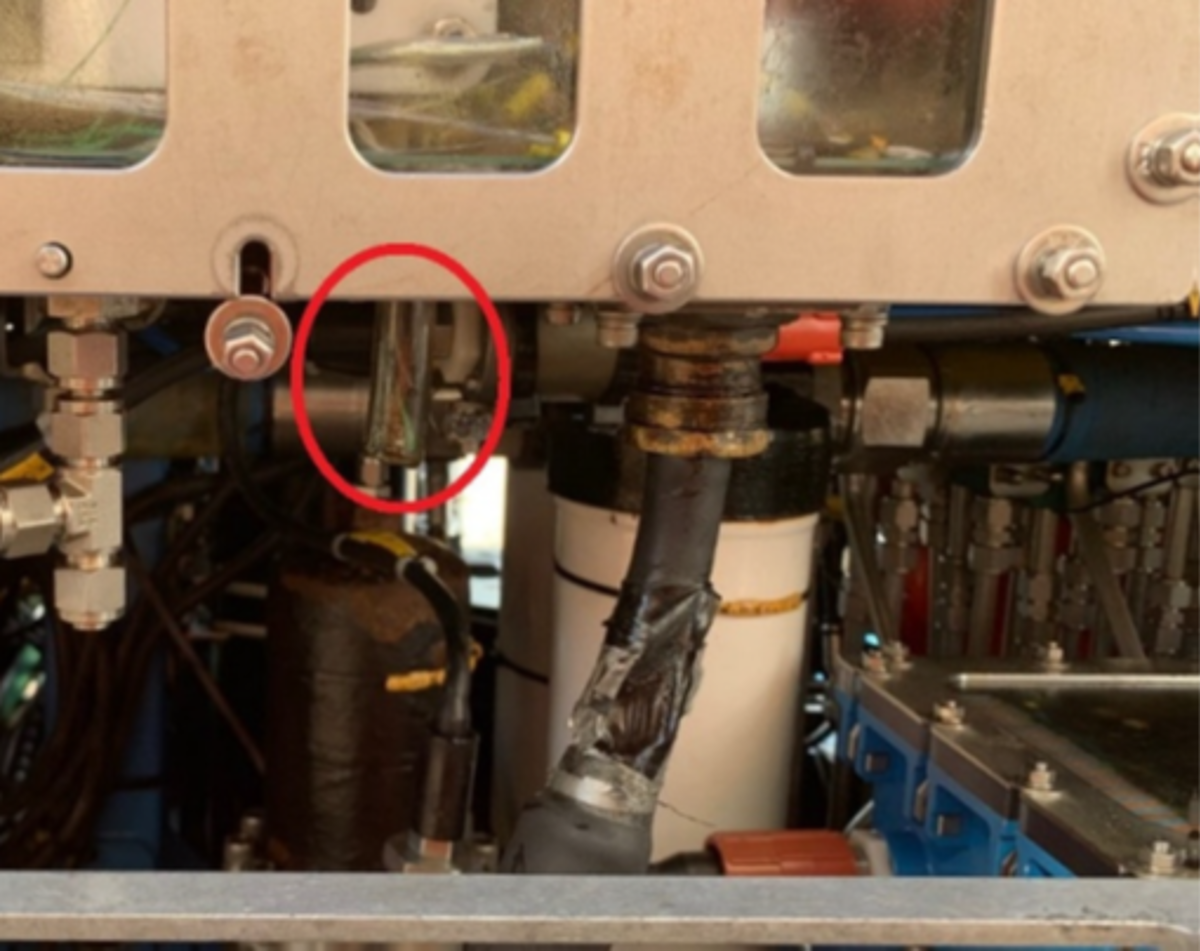Electric shock resulting in burn
- Safety Flash
- Published on 19 February 2020
- Generated on 26 February 2026
- IMCA SF 06/20
- 2 minute read
Jump to:
An ROV technician received an electric shock to his left arm beneath the elbow, resulting in a burn
What happened?
ROV personnel were working in the technical workshop completing a non-electrical related task, bleeding air on top of the HP filter housing from the main hydraulic circuit, when the technician received the shock.
The ROV single phase power was energised, but the area of the ROV (Phase 3) that was being worked on was isolated, de-energised and locked out.

What went wrong?
Investigation established that a water drain tube had been used as a conduit for an electrical cable, both the drain and electrical cable had been cut in half, but it was unclear whether or not the cut happened during demobilisation, transit, or during the skid and ROV segregation in the technical workshop.
The cut cable exposed live electrical wires. Once the cut wires were isolated, personnel were able to identify that they were connected to a separate transformer, and thus the wires were found to be live even after isolating and locking out the area of work.
The system had been recently demobilised from a project. The routing of the electrical cable through the water drain was a modification to the system that had not been documented, communicated or handed over to workshop personnel after the ROV was demobilised. The electrical cable, which had been cut, exposed the bare wires rather than being disconnected and removed.
What actions were taken?
- All electrical cables should be properly disconnected and/or removed, not cut, when demobilising equipment.
- ROV system modifications should be noted within drawings and ROV system paperwork. Major system modifications should follow a formal management of change (MoC) process, which is the responsibility of the supervisor on site.
- There should be a documented handover between the offshore supervisor and technical workshop supervisor, and this should include details of any system modifications and instructions for disconnection and removal (if not already completed).
Related Safety Flashes
-
IMCA SF 33/16
6 December 2016
-
IMCA SF 05/13
4 April 2013
-
IMCA SF 03/12
4 April 2012
-
IMCA SF 07/09
2 June 2009
IMCA Safety Flashes summarise key safety matters and incidents, allowing lessons to be more easily learnt for the benefit of the entire offshore industry.
The effectiveness of the IMCA Safety Flash system depends on the industry sharing information and so avoiding repeat incidents. Incidents are classified according to IOGP's Life Saving Rules.
All information is anonymised or sanitised, as appropriate, and warnings for graphic content included where possible.
IMCA makes every effort to ensure both the accuracy and reliability of the information shared, but is not be liable for any guidance and/or recommendation and/or statement herein contained.
The information contained in this document does not fulfil or replace any individual's or Member's legal, regulatory or other duties or obligations in respect of their operations. Individuals and Members remain solely responsible for the safe, lawful and proper conduct of their operations.
Share your safety incidents with IMCA online. Sign-up to receive Safety Flashes straight to your email.